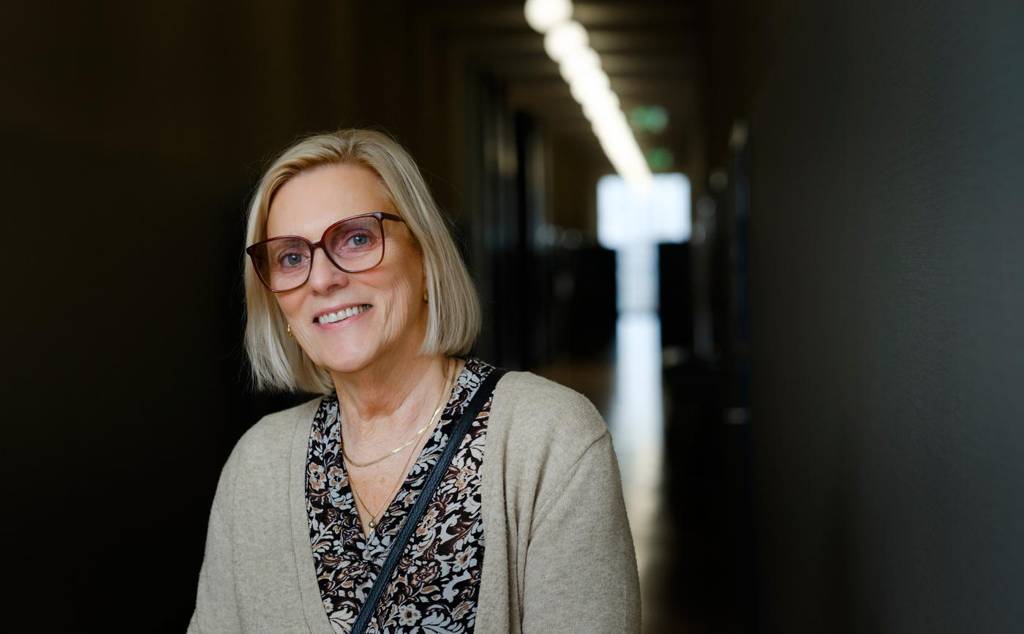Some children not attended school for two years

The schooling of children in Icelandic elementary schools is an extensive problem that seems to move down to the youngest grade of elementary school. There are examples where children up to the first grade do not attend school for a long time.
Teachers, school administrators and professionals experience a great deal of remedy in this area, which is too late to intervene and the issues have come to a serious level where they are more difficult to deal with.
This is stated by Sigrún Harðardóttir, associate professor of social counseling at the University of Iceland, in a conversation with Morgunblaðið, but she is working on a study in collaboration with the staff of the Children’s and Adolescents Department of Landspítali (BUGL) on the schooling of children in Icelandic elementary schools.
The problem has been little researched in this country, but Sigrún says that the schooling has been present since the modern school system was launched and the problem seems to be growing.
Registration of lack in Icelandic schools
Teaching declares in conscious or unconscious behavior that a child or adolescent shows when attending school. The behavior appears difficult to attend school, whether part of the day, for certain lessons or for a long or short time.
In 2019, the Welfare Watch study showed that 2.2% of compulsory school students could wrestle with schooling in Iceland. Sigrún says that the number is probably much higher as schools seem to have difficulty in keeping track of children’s absence.
She points out that in the Nordic countries, comparable studies have shown that the tuition of elementary school students is around 3 to 5 percent.
« I think this is about the fact that in many places the registration of students is lacking in Icelandic elementary schools. It seems difficult for the schools to keep track of this as they do not know what to record as absence, what is the schooling and so on, » says Sigrún.
Sigrún Harðardóttir, associate professor of social counseling at the University of Iceland.
Photo/University of Iceland
Call for professionals
The study conducted interviews in focus groups with managers and teachers in the city’s elementary schools and with professionals at the City of Reykjavik service centers. The interviews clearly stated that there is a remorse for the issue, where the children’s problems are intervened late.
« The staff of the schools experience this as a great distress, social isolation and fear. They see that the school attendance problem is moving down in age. A few years ago, these were more upper grades of elementary school but now it has come down to the first grade, » says Sigrún.
She says teachers are experiencing schooling as a great challenge to deal with and they call for more professionals into the schools, such as social workers, developmental therapists and occupational therapists. Furthermore, school administrators expressed the importance of class management being good, as contributing to the promotion of social relationships for students to prevent bullying and exclusion of students from the group.
In addition, teachers have also mentioned that housing shortages, little time and tension in communication with parents make it more difficult for them to deal with the problem. At the same time, they expressed dissatisfaction with the system’s reaction, as it was too long for professionals to intervene.
Experience remorse
« According to the prosperity law, the problem should be solved in the first stage, but if it fails, they go to another level for welfare services. It states that they (the children) are coming too late and then they (the problems) have become so complex.
They experience a little bit of remedies with these issues, both in the welfare field and in the schools, where the issues need to be intervened much sooner, ”says Sigrún, adding that the issues have often become so heavy when they come on the welfare service that their resources do not cover the problem.
« There are examples of children who have not attended school for two years and then they are in third -degree services like BUGL. There are many very heavy issues there and difficult to turn this around. »
Parents have become courageous
Sigrún also notes that the schooling is extremely heavy for the parents of the children who also experience a lot of remedies.
In the interviews with teachers and professional welfare professionals, it was stated that many parents have run into bankruptcy because of the child’s position, as many people try to adapt their work in order to be home with the child. For example, by seeking telecommunications.
« We often talk about researching these groups that we are creating heavy and difficult issues on the health care system by not responding sooner. »








